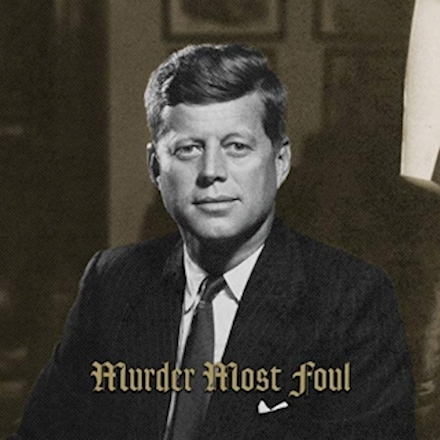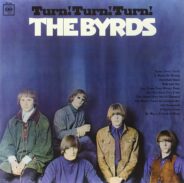
President Kennedy and the Dissolution of the Dream
WINDSOR TERRACE — No political theme song could have been more appropriate for John F. Kennedy’s presidential campaign than Frank Sinatra’s classic cover of Sammy Cahn and Jimmy Van Heusen’s exuberant “High Hopes.”
After all, Kennedy was the handsome young Irish Catholic candidate who grew up in Brookline, Mass., and attended St. Aidan’s Church. He exuded charm and offered hope to an America entering a dramatic new decade. It was 1960, and during that year, he would win the presidency and be sworn into office on January 20, 1961.
And for a brief shining moment, he stood tall within the hallowed walls of Camelot, before it was all gone in an earth-shattering instant. Less than three years later, Lee Harvey Oswald would assassinate Kennedy in Dallas on Nov. 22, 1963.
All those high hopes were destroyed within the report of a rifle, as the nation mourned the loss of a young man in his prime. Prominent songwriters of the day wasted no time eulogizing the passing and the promising dream of what might have been.
One of the first tribute songs mourning Kennedy was “In the Summer of His Years,” a poignant ballad that opens with the lyric, “A young man rode with his head held high under the Texas sun; And no one guessed that a man so blessed would perish by the gun.”
The Beach Boys’ Brian Wilson and Mike Love began writing “The Warmth of the Sun” the day Kennedy was assassinated. Wilson viewed the tender, haunting ballad as a personal response to the tragedy. “The Warmth of the Sun” is not obviously about Kennedy, but instead evokes a romantic sense of loss and devastation where the only comfort the narrator can find is knowing “Still I have the warmth of the sun within me tonight,” and that “It won’t ever die.”
Kennedy’s popularity with the nation’s youth never waned, as popular folk and rock artists of the day began writing songs about him. The Byrds were already flying high with profound covers such as Bob Dylan’s “Mr. Tambourine Man” and “Turn, Turn, Turn (To Everything There Is a Season),” which was adapted by folk icon Pete Seeger from the Book of Ecclesiastes.

“He Was a Friend of Mine” was adapted from an old folk song from 1939. The Byrd’s Roger McGuinn (known as Jim McGuinn at the time) rewrote the melody and changed the lyrics to detail the story of Kennedy’s murder from a personal point of view.
McGuinn recalled that he was working for Bobby Darin and writing songs at the Brill Building in New York City when he came home one night and heard the president had been assassinated. He was so moved that he got his guitar and wrote a song about it.
The heartfelt ballad laments the fact that Kennedy’s “killing had no purpose, no reason or rhyme.” The singer admits that “Though I never met him, I knew him just the same,” describing an air of familiarity many people identified with Kennedy.
In vivid detail, the murder is recalled when McGuinn sings, “He was in Dallas town when from a sixth-floor window, a gunner shot him down; Oh, he died in Dallas town.” Ultimately, Kennedy is mourned as the “leader of a nation for such a precious time.” The song was the closing track on the Byrds’ classic “Turn! Turn! Turn!” album in 1965 and remains one of the most evocative ballads written about the tragedy.
In 1984 Lou Reed released his recollection in “The Day John Kennedy Died,” a song that reinforced the notion that anyone alive at the time remembers precisely where they were and what they were doing when they heard the news of Kennedy’s death. Reed sings, “I remember where I was that day, I was upstate in a bar; The team from the university was playing football on TV; Then the screen went dead and the announcer said, ‘There’s been a tragedy.’”
Before the end of the decade, pop and doo-wop star Dion would score a number 4 hit in 1968 with the folk-infused ballad “Abraham, Martin and John,” written by Dick Holler. The song recalls the tragic fate of three visionaries, John Kennedy, Abraham Lincoln, and Martin Luther King.
After Kennedy was assassinated, the country further suffered the loss of his younger brother Robert, and Civil Rights leader Dr. Martin Luther King. The lyrics read, “Has anybody here seen my good friend John; Can you tell me where he’s gone? He freed a lot of people, but it seems the good die young.” The sense of loss and confusion is compounded by the prevailing notion of Kennedy’s accomplishments during his brief time in office.
In 1984 Johnny Cash was the first to release a cover of Kris Kristofferson’s “They Killed Him,” a brutally frank recounting of senseless deaths through the years, citing revolutionaries like Mahatma Gandhi, the Kennedy brothers, Martin Luther King, and Jesus Christ. Kristofferson himself recorded the song in 1986, as did Bob Dylan, who included his version on his “Knocked Out Loaded” album.
Adding Christ to the equation added even greater impact to the catalog of tragic heroes, with the paralyzing refrain, “On the road to glory where the story never ends; Just the Holy Son of Man, we’ll never understand, my God, they killed Him.”
And after nearly six decades, songs are still being written about John F. Kennedy. Bob Dylan released the single “Murder Most Foul” in March, which uses Kennedy’s death as the central conceit that defines America’s history for future generations. “Twas a dark day in Dallas, November ’63, a day that will live on in infamy; President Kennedy was a-ridin’ high; Good day to be livin’ and a good day to die.”
In the nearly 17-minute song, Dylan refers to Kennedy as a sacrificial lamb led to the slaughter and proceeds to reference notable names in a stream-of-conscious catalog of events. The random list cites musicians, actors, artists, politicians, and comedians as disparate as Shakespeare, Nat King Cole, Buster Keaton, John Lee Hooker, and Wolfman Jack; all familiar names that have factored, to differing degrees, into the fabric of popular culture.
And there’s something profoundly comforting in knowing that an iconic voice for the ages like Bob Dylan, who warned us about the chimes of freedom flashing back in 1964, would help keep Kennedy’s legacy alive in song. After all, the enduring dream of Camelot and what once was may have faded, but the legacy of America’s first Irish Catholic president has been a source of inspiration for poets and songwriters for generations, and likely will be for generations to come.
